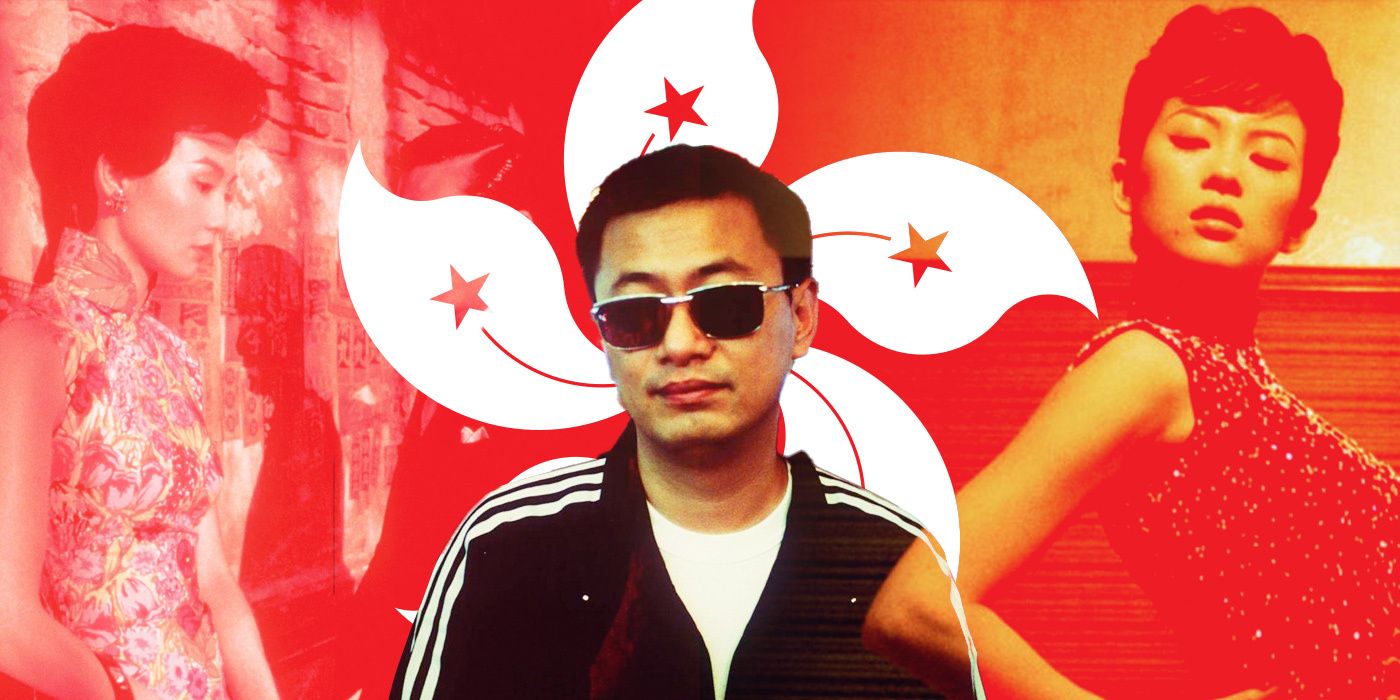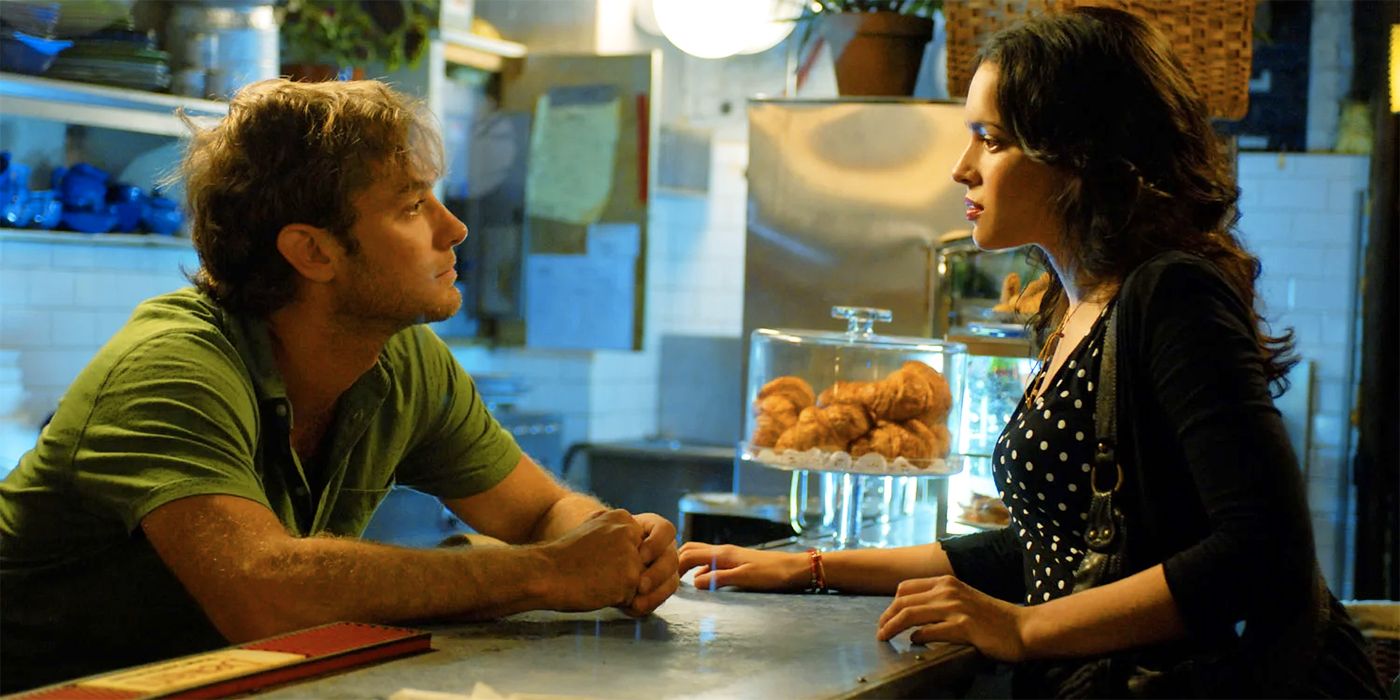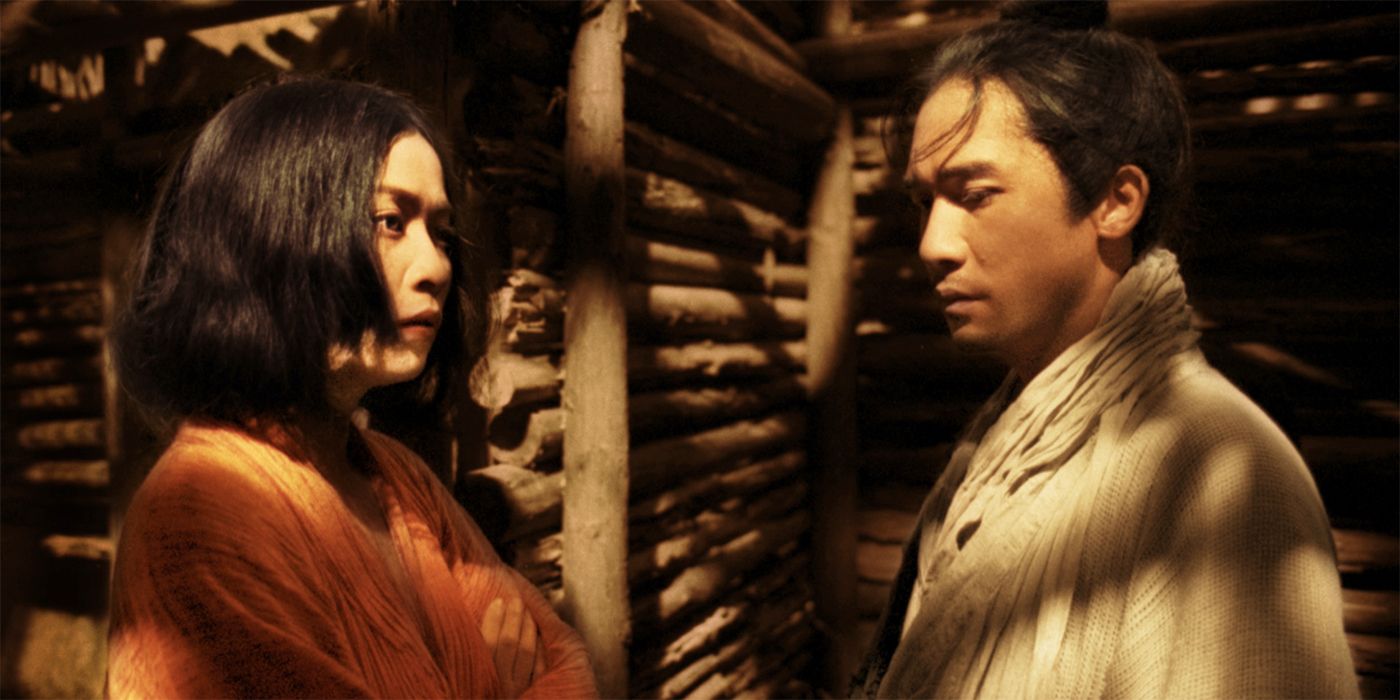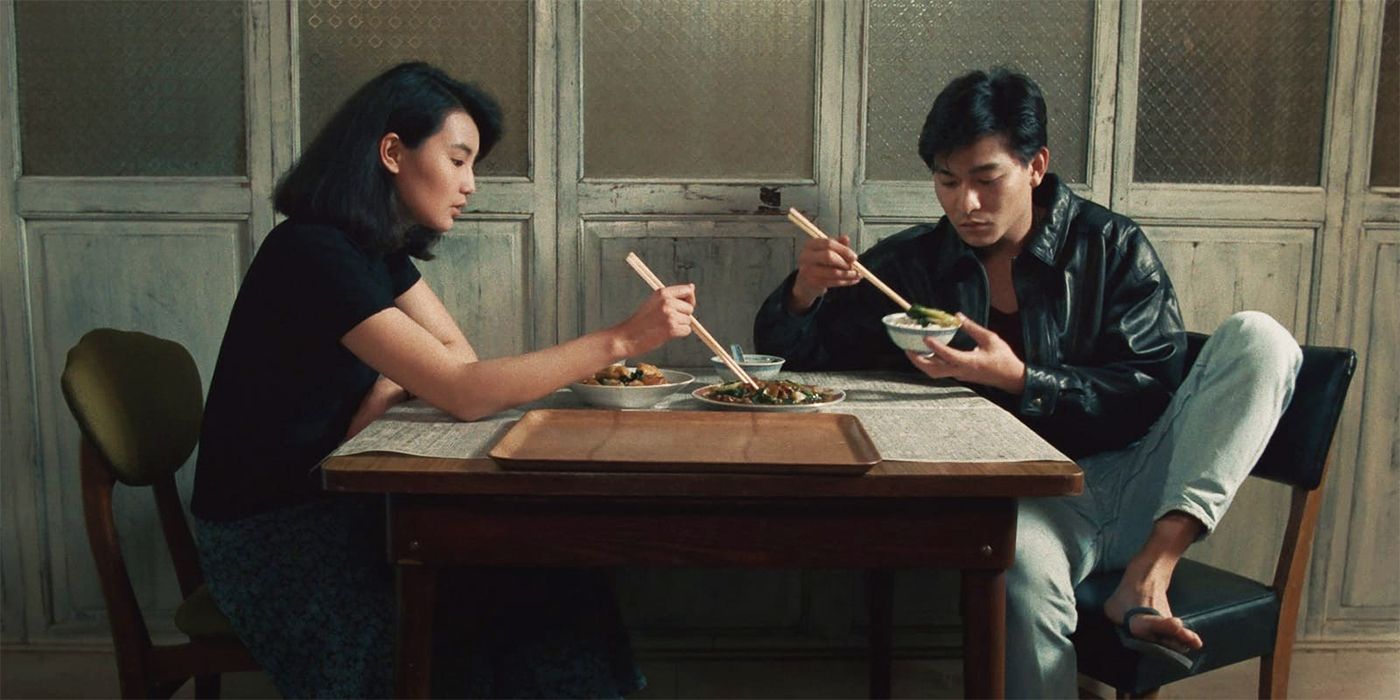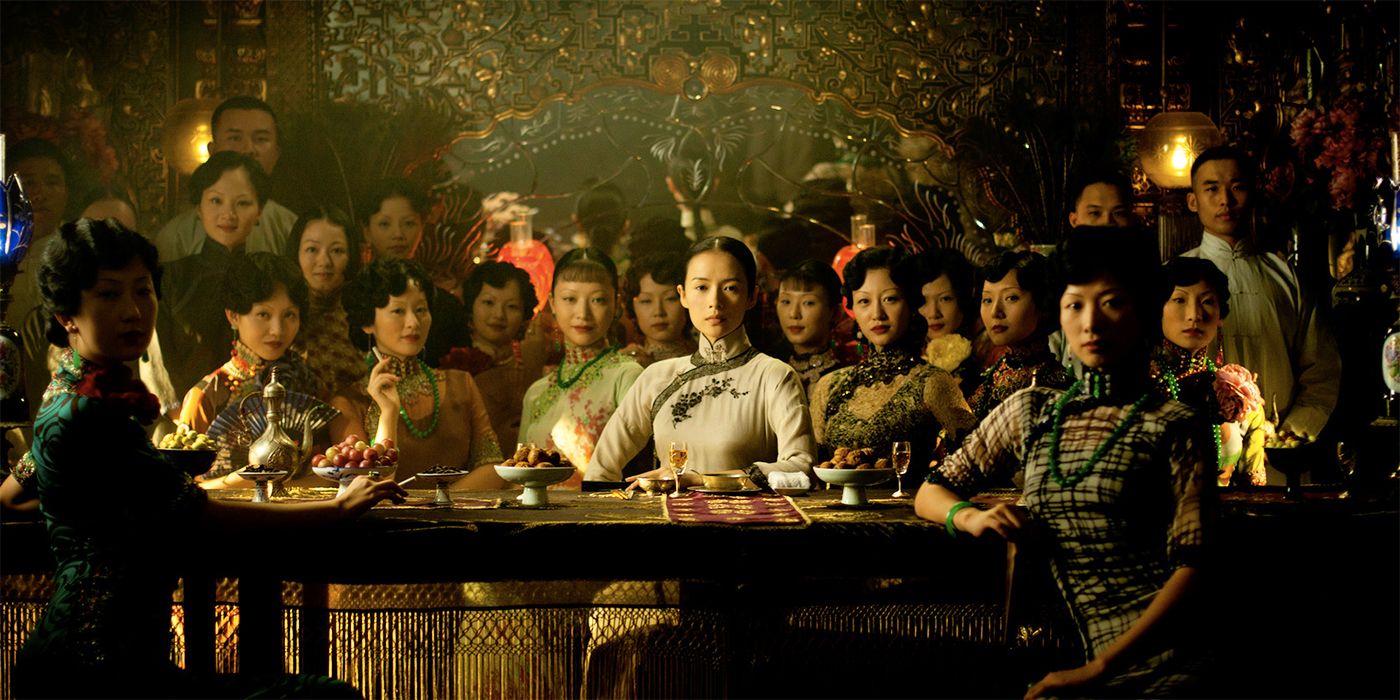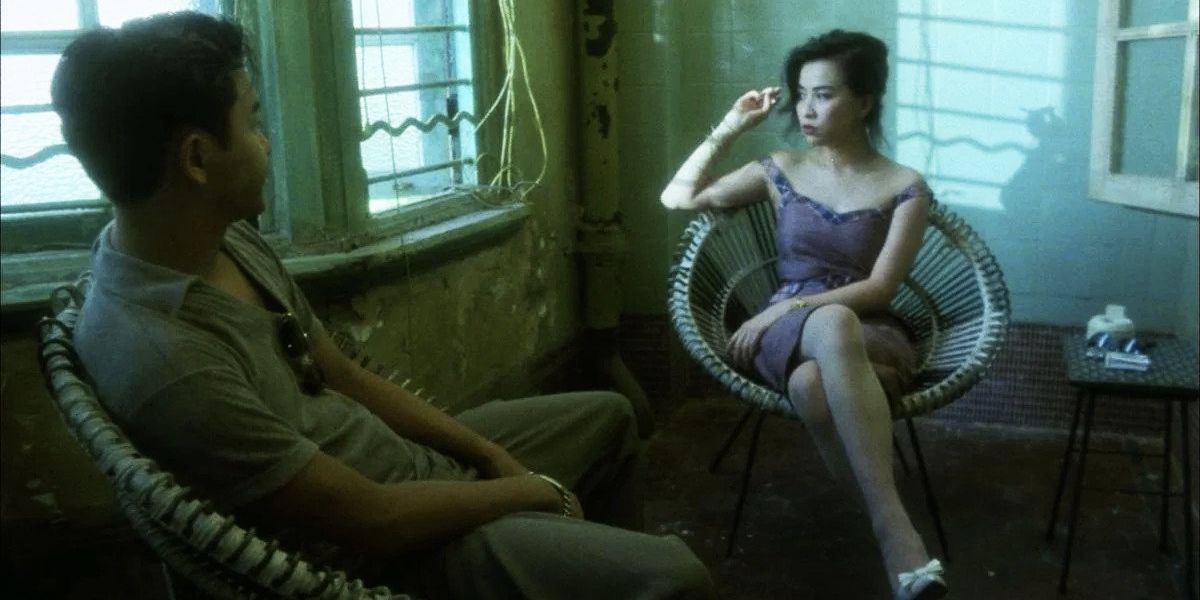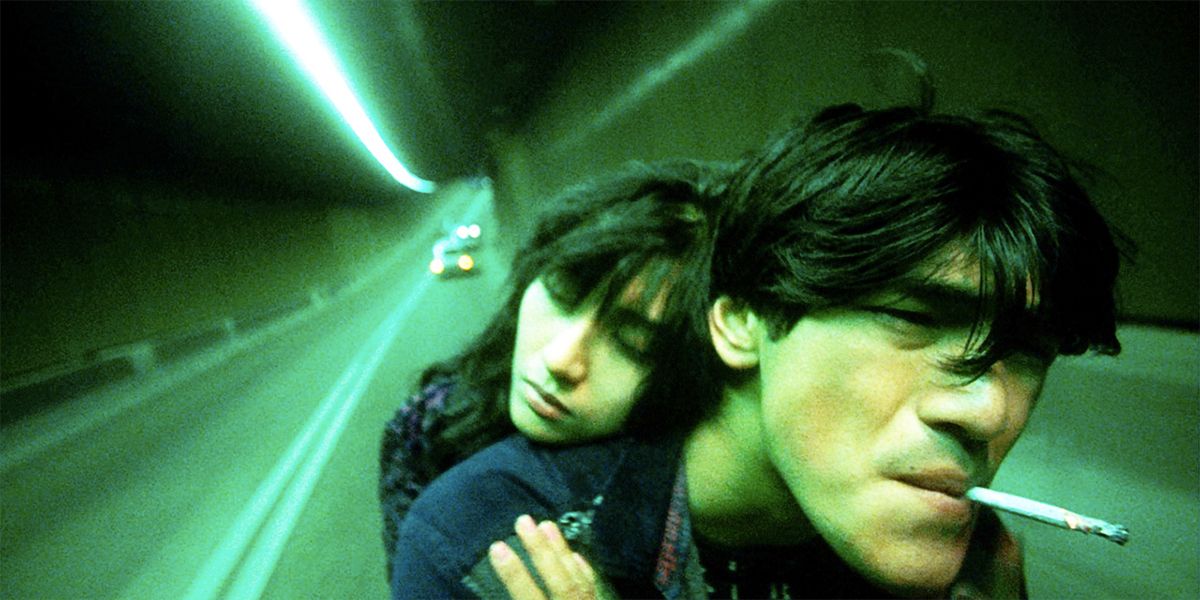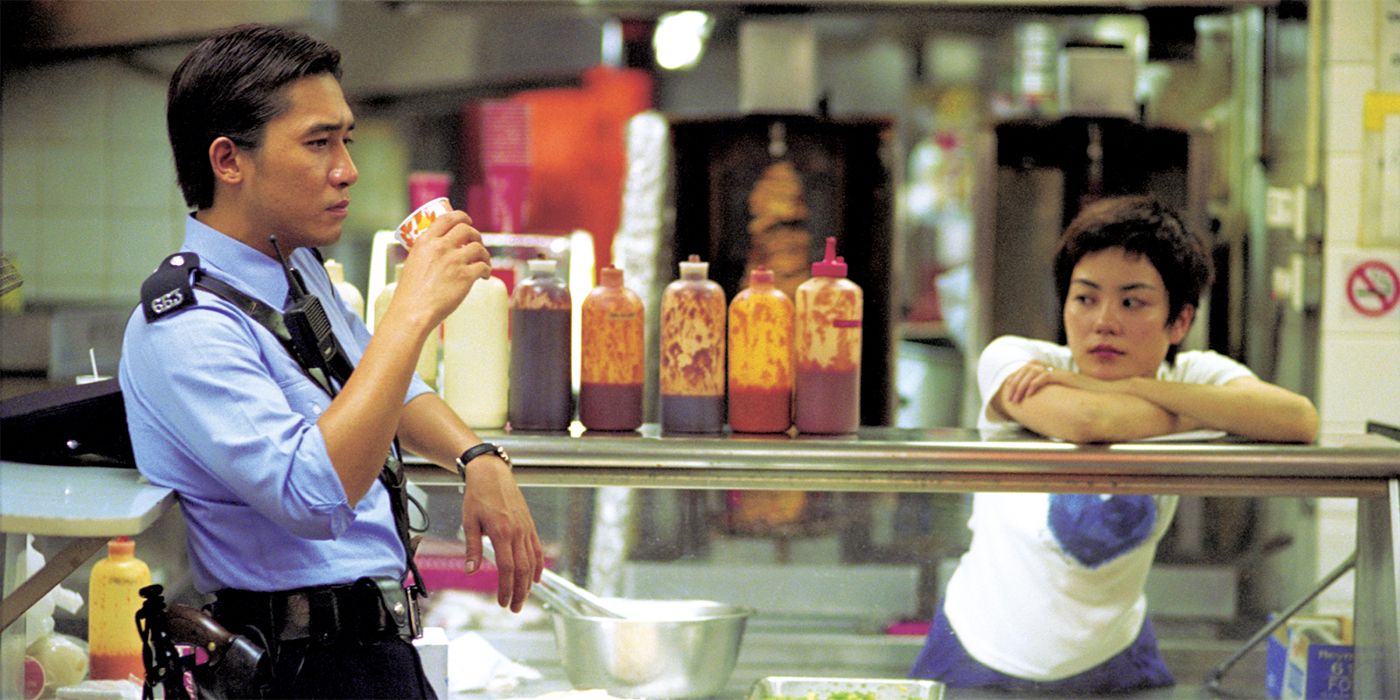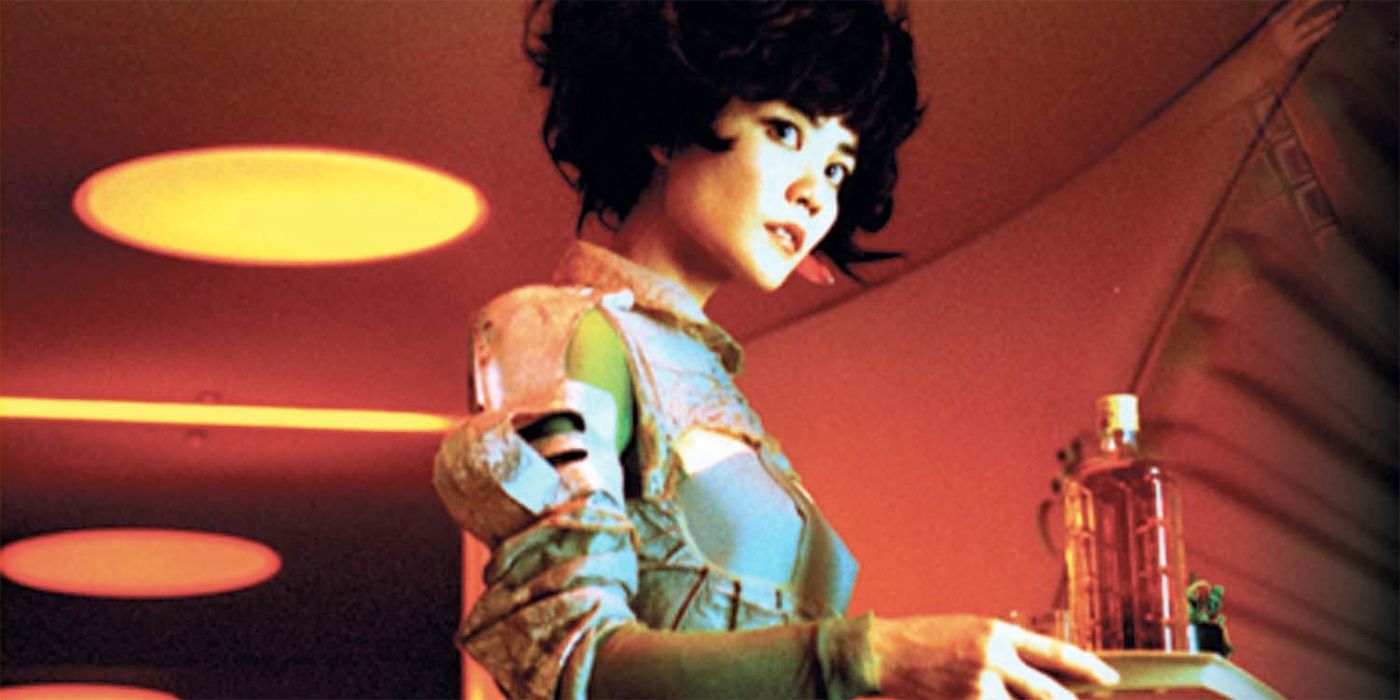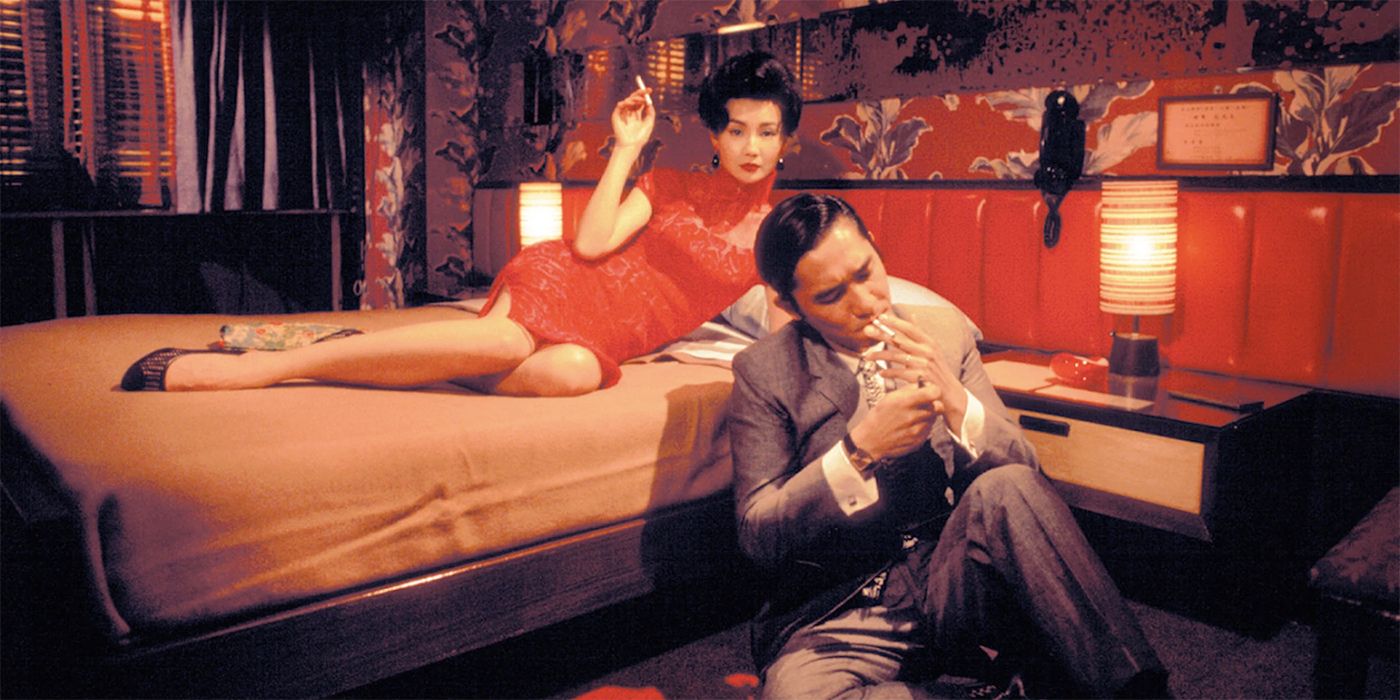The Big Picture
- Wong Kar-wai's films are known for their melancholic plots, romantic themes, kinetic imagery, and poignant scores.
- Wong's unconventional approach to filmmaking results in long production periods and unfinished scripts.
- Wong has only released 10 films along with a few shorts and, most recently, a television series called Blossoms.
Anyone who has dipped a toe into Hong Kong cinema or international film is probably familiar with visionary director Wong Kar-wai. Bursting onto the scene in 1988 with his directorial debut As Tears Go By, Wong's films have been known for their melancholic plots, romantic themes, kinetic imagery, and poignant scores. With frequent collaborators like Tony Leung Chiu-Wai, Leslie Cheung, Maggie Cheung, and Carina Lau, Wong weaved a mesmerizing tapestry of films connected by thematic through lines of love, loss, and longing.
Topping many best director lists, Wong is notorious for his unconventional approach to filmmaking which means long production periods and unfinished scripts, with actors often having to work off of just a couple of pages of script and reshooting takes multiple times. It's no surprise then that despite being so beloved in the film community that this Hong Kong director has only put out 10 total features. His most recent project Blossoms, based on the Jin Yucheng novel of the same name that explores Wong's own hometown of Shanghai from the 1960s to the 2000s. While it is only available to watch in China at the moment, the 30 episode long series is meant to be a third installment in a trilogy with In The Mood for Love and 2046.
Here are all of those features ranked from the good to the sheer perfection.
10. My Blueberry Nights (2007)
Shocking no one, My Blueberry Nights sits in last place. Wong's first English-language feature still has all of his hallmarks, but too many things get lost in translation. Unfortunately, it's too familiar, from the star-crossed lovers Elizabeth (Norah Jones) and Jeremy (Jude Law) to the pensive and thoughtful narration, it just doesn't offer anything new. I hesitate to call anything Wong makes stale, but it is certainly uninspired. The script is rough at times, with some misogynist takes on Rachel Weisz's character and jarring pacing. Still, there is still something charming about the film that puts Law and Jones together as long-distance paramours. The final scene of the lovers reunited might just be emotional enough for me to give it a rewatch.
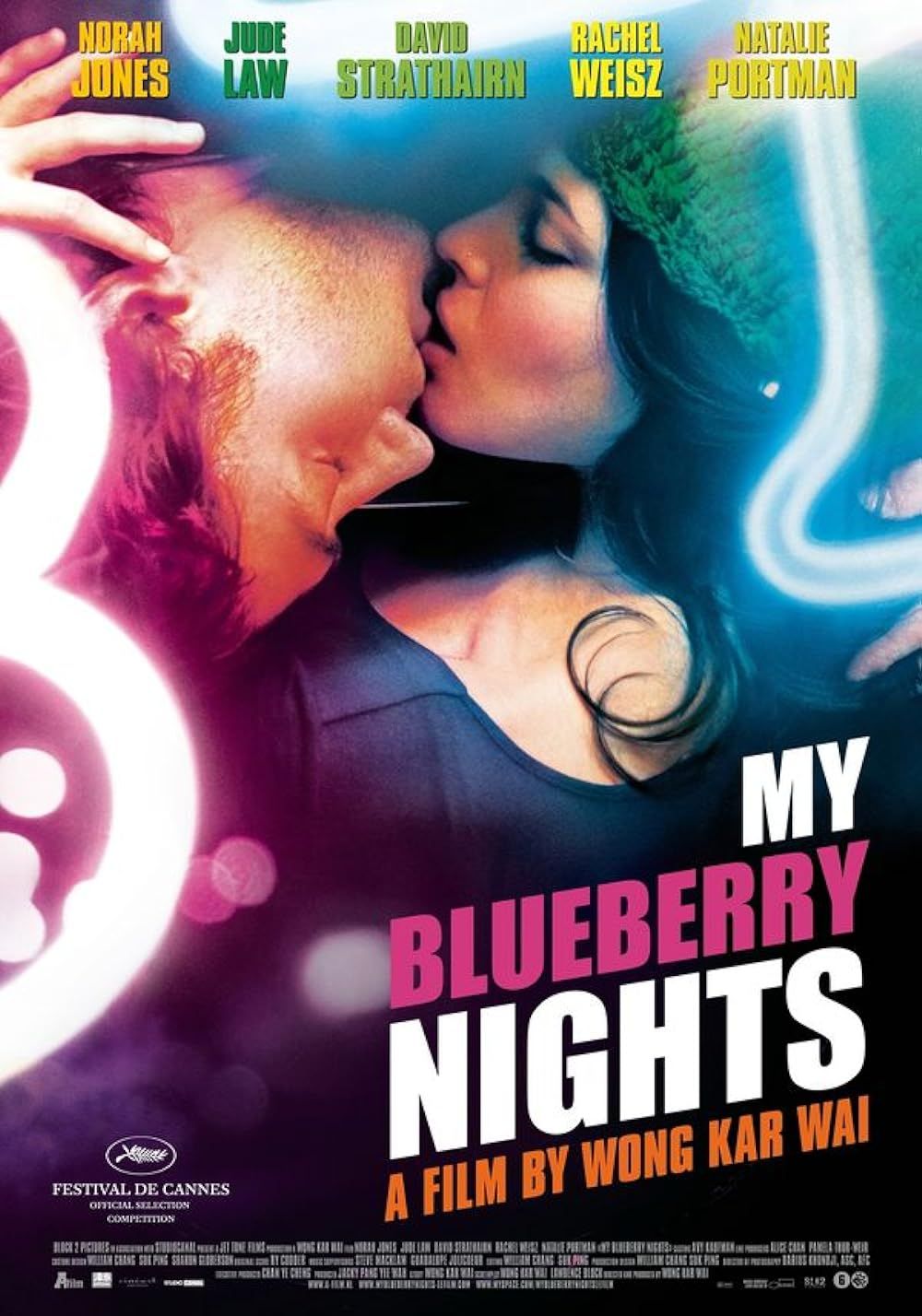
My Blueberry Nights
After her boyfriend of five years breaks up with her, Elizabeth (Norah Jones) consoles herself by consuming creamy confections at a sympathetic cafe owner's (Jude Law) eatery. She sets out on a road trip, supporting herself as a waitress along the way. Elizabeth meets a host of interesting characters on her journey, including an alcoholic policeman (David Strathairn), his unfaithful wife (Rachel Weisz), and a gambler (Natalie Portman).
- Release Date
- November 28, 2007
- Director
- Kar Wai Wong
- Cast
- Jude Law , Norah Jones , Chad R. Davis , Katya Blumenberg , John Malloy , Demetrius Butler
- Runtime
- 90
- Main Genre
- Drama
9. Ashes of Time 東邪西毒 (1994)
Based on the Wuxia novel The Legend of the Condor Heroes, Ashes of Time is actually quite a sharp divergence from Wong's style, something he had established four years prior with Days of Being Wild and reinforced in 1994 with Chungking Express. Ashes brings in all of Wong's familiar faces to participate in this period piece, but where it fell flat for viewers and critics was its nearly incomprehensible plot. A second viewing is basically required with this one, especially if you are not familiar with the source material. But, like all of Wong's films, there's still a lot to praise. Rather than approaching it from a purely martial arts angle, which is what Wuxia films were known for at the time, Wong took the time to spin a complicated but introspective yarn on legendary heroes who are often merely archetypes.
8. As Tears Go By 旺角卡門 (1998)
It might shock some to see Wong's directorial debut so low, but Wong was just discovering his style in As Tears Go By, and the film's crime bend was clearly connected to the boom of crime films by fellow directors like John Woo. While Andy Lau, Jacky Cheung, and Maggie Cheung give strong performances, the plot is nothing to write home about. HK gangster film aficionados are better off with flicks like Election or Internal Affairs. And, from a contemporary perspective, the fact that the romance between Ngor (Maggie Cheung) and Wah (Lau) is actually a romance between cousins is slightly unsavory – I'm not sure the two are actually related by blood.
7. The Grandmaster 一代宗師 (2013)
Wong's most recent feature is only number 7 because so many of his films are veritable classics. For any other director, this film might top the charts. Disguised as a historical martial arts film about real-life kung fu legend Ip Man (known, among other things, for training a young Bruce Lee), The Grandmaster is actually a philosophical movie, one about a war-torn country, about Chinese regionalism, about economical upheaval, about vengeance. Wong sneaks this all in while showing us stunning shots of Tony Leung Chiu-Wai and Zhang Ziyi fighting using various styles of kung fu, with a quiet romantic connection between the two that is far less fiery than their 2046 counterparts.
The star of this is not Leung's Ip Man but rather Zhang's fictional Gong Er, the daughter, and heir to her father's unique martial arts style. Showcasing a woman at the center of this story, with an intriguing plot about avenging her father's death during the Second Sino-Japanese War, is exciting for a genre normally dominated by male stories. As one of the first Wong films I properly saw in theaters, this one holds a special place in my heart.
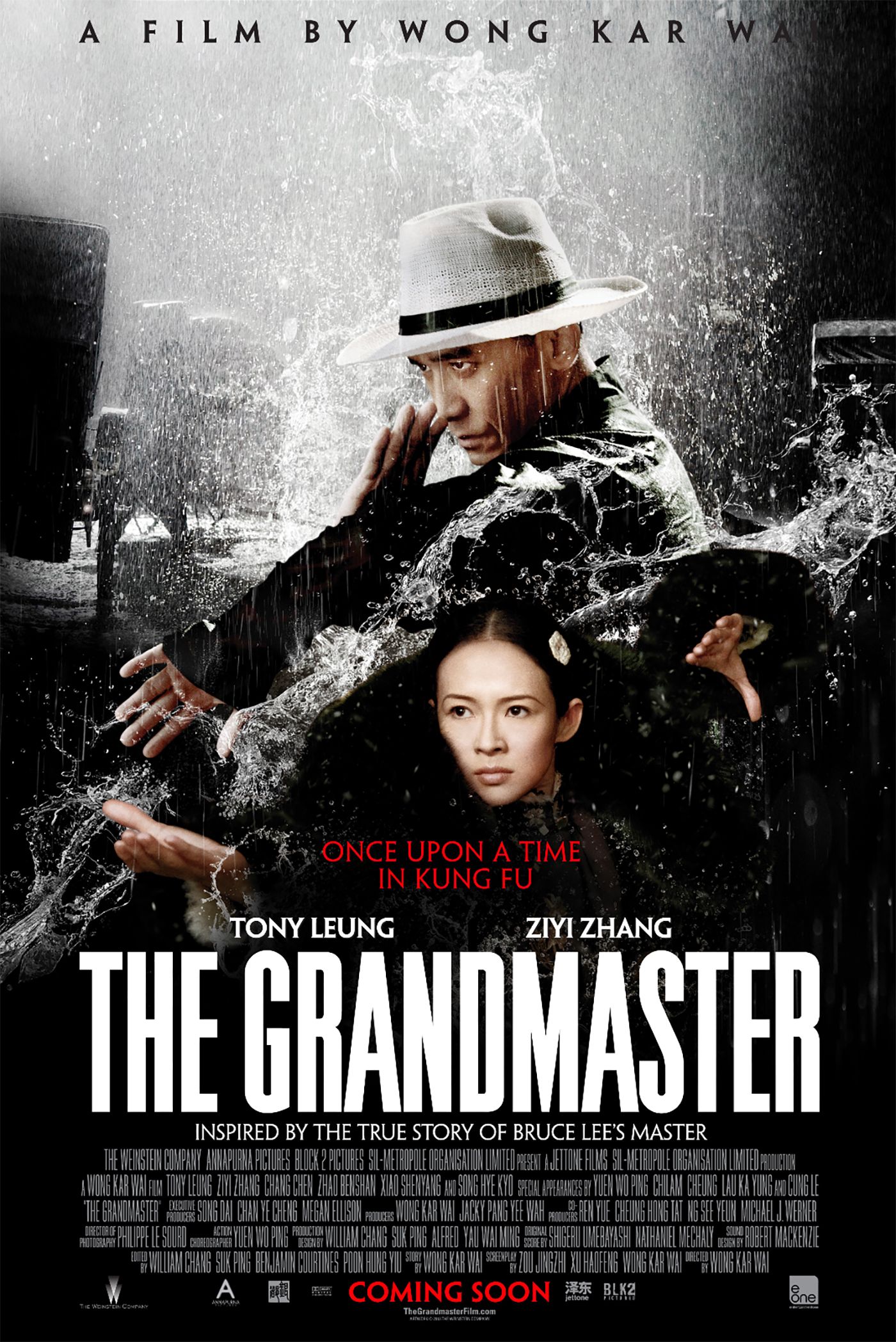
The Grandmaster
The fall of China's last dynasty, a time of chaos, division and war, is the golden age of Chinese martial arts. Legendary kung fu master Ip Man, who will eventually train Bruce Lee, finds his peaceful life interrupted by vengeance.
- Release Date
- January 10, 2013
- Director
- Kar Wai Wong
- Cast
- Ziyi Zhang , Tony Leung Chiu Wai , Hye-kyo Song , Cung Le , Chen Chang , Woo-ping Yuen
- Runtime
- 130
- Main Genre
- Action
6. Days of Being Wild 阿飛正傳 (1990)
At some point, in the making of this list, Days of Being Wild was much higher. But it's basically impossible to rank these movies after this point (I was clearly already struggling with The Grandmaster). This is lower on the list simply because, as far as stories go, this is one of the less memorable. We follow Leslie Cheung's Yuddy, a young man who is struggling to find his identity and his origins, but along the way we meet other characters and lovers that pepper his life but never fully impact it. It is considered the first in Wong's unofficial trilogy, with In the Mood for Love being second and 2046 being third, featuring both Maggie Cheung (as the recurring Su Lizhen) and Tony Leung Chiu-Wai (known only as Gambler here). And yes, I did say that Blossoms is now being called the third in the trilogy, it doesn't seem like Wong really holds much credence to this idea though if there was ever going to be a trilogy of his films, not including Blossoms makes far more sense. Wong's sophomore film establishes his signature visual style, with it being his first collaboration with cinematographer Christopher Doyle.
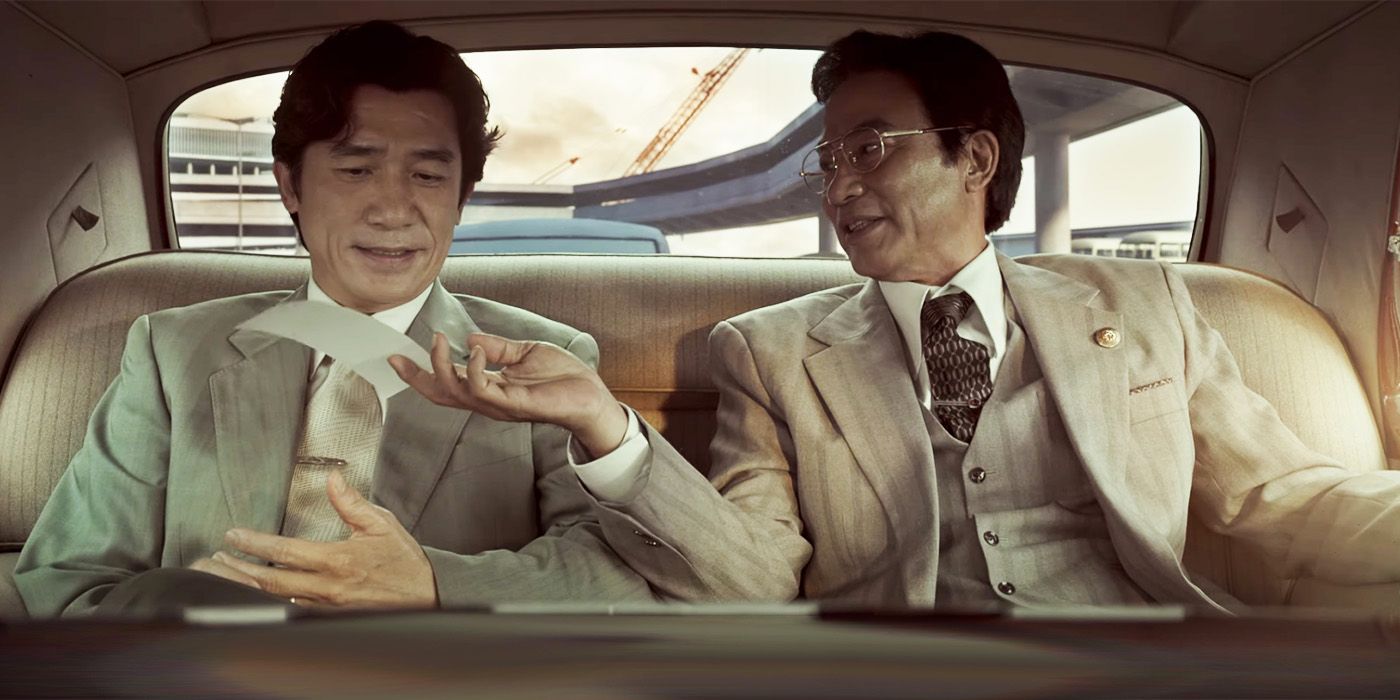
'The Goldfinger' Trailer Reunites Tony Leung and Andy Lau in Financial Drama
The duo also reunites with 'Internal Affairs' writer and director Felix Chong.5. Fallen Angels 墮落天使 (1995)
In a perfect world, Fallen Angels and Chungking Express share the same rank, especially since the two films are meant as companion pieces. But, Faye Wong's performance in Chungking pushes it just that much into spot number 4. But Fallen Angels demonstrates all the quirkiness and allure of what makes Wong's films great. Split into two stories, the first follows an assassin (Leon Lai) and a woman known as his partner-in-crime (a mesmerizing Michelle Reis). The nameless woman is obsessed with the assassin, and when he tries to break off their connection, Wong utilizes one of his best needle drops by utilizing Shirley Kwan's cover of "Forget Him", a classic Teresa Teng Cantopop hit, to emphasize the pain of this breakup.
The second story features a perfectly eccentric Takeshi Kaneshiro as a prison escapee, focusing on his unrequited love for a girl named Charlie (Charlie Yeung) and his relationship with his dying father. Fallen Angels is a cocktail that shouldn't work. It mixes aspects of absurd whimsy with gritty crime, painful grief with comedic ridiculousness. The characters are interwoven despite the two separate stories, connected only by the colorful neon nights of Hong Kong.
4. Chungking Express 重慶森林 (1994)
The yang to Fallen Angels' yin, Chungking Express is probably best known for its second story featuring Faye Wong and Tony Leung Chiu-Wai. Somewhere during the filming of this movie, Leung began to perfect his charismatic winsome smile, his deep longing stare, and that specific joie de vivre that he became so well known for in his films with Wong. Completed in only 6 weeks, a sprint compared to Wong's other productions, Chungking Express is probably Wong's lightest film.
In the first story, Kaneshiro returns but this time as Ah Wu, a cop who has recently been dumped. He bumps into a woman in a blonde wig (Brigitte Lin) who he shares a connection with. In the second story, Leung appears as Cop 663, another recently dumped man, and meets Faye (Wong), a snack bar worker. Faye develops a crush on the cop, sneaking into his apartment to clean and redecorate. The film employs another great needle drop of "California Dreamin" and is the rare Wong film that seems to end on an optimistic note.
3. Happy Together 春光乍洩 (1997)
After much deliberation, Happy Together is number 3. While it originally held the number 2 spot, my personal connection to 2046 won over any unbiased defenses. As one of Wong's most chaotically romantic films, Happy Together follows the highs and lows of the relationship between Ho Po-Wing (Leslie Cheung) and Lai Yu-Fai (Tony Leung Chiu-Wai). Often praised for its portrayal of a gay romance, there is more to love when it comes to this film than just representation. Set in Argentina, Happy Together is not only a story about toxic love but about loneliness and alienation with themes of cultural identity baked in.
Ho and Lai are simultaneously drawn to each other and definitively bad for each other. A heartbreaking story of a struggling romance, the film is undoubtedly one of Wong's best films. It is made all the more tragic that although the film helped to firmly establish Cheung's queer identity, it intensified negative commentary surrounding his sexuality. That discourse was likely an exacerbating factor of his depression which ultimately lead to his death by suicide in 2003.
2. 2046 (2004)
Again, for me, 2046 and In the Mood for Love hold the same standing in my heart, though the latter wins out for the top spot for obvious reasons and because of how it changed upon rewatch. 2046 came to me at a very pivotal point in my life. At the tender age of 14, when I was probably not supposed to watch this movie, my mom showed it to me, and it cemented a life-long obsession with Wong's films (and tragic love stories).
Following Chow Mo-wan (Tony Leung Chiu-Wai) after his time during In the Mood for Love, 2046 is another story about love lost. Chow, as a journalist and a writer, offers a unique perspective on the people around him when he moves into apartment 2047 and observes the lives of people in the neighboring room 2046. Combining elements of sci-fi and a frame narrative, 2046 is one of the most exciting narrative structures, rivaled only by the puzzling Ashes of Time. Leung is sheer perfection in this and manages to have chemistry with not only Maggie Cheung, but also Zhang Ziyi and Gong Li.
This also happens to be the movie where a young Ke Huy Quan began working with Wong after he left Hollywood. Quan served as an assistant director on the film.
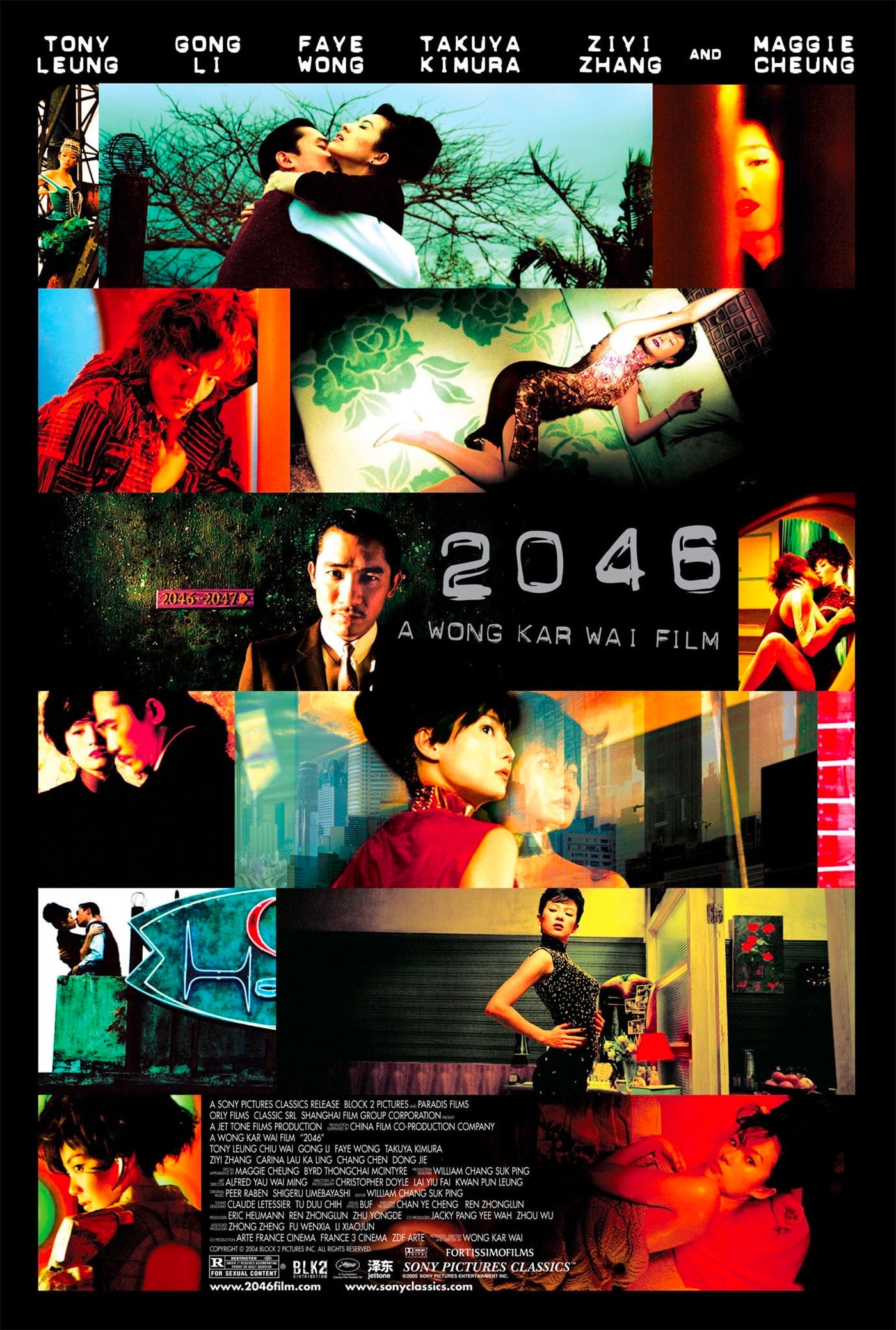
2046
Several women enter a science fiction author's life over the course of a few years, after the author has lost the woman he considers his one true love.
- Release Date
- September 29, 2004
- Director
- Kar Wai Wong
- Cast
- Tony Leung Chiu Wai , Li Gong , Faye Wong , Takuya Kimura , Ziyi Zhang , Carina Lau
- Main Genre
- Drama
1. In the Mood for Love 花樣年華 (2000)
Of course, In the Mood for Love takes the top spot. Not only because it is so often called one of the greatest films of all time, but because it is actually a rather unconventional Wong film that manages the restraint and subtlety that we don't often see in his other films. There are no gangsters or assassins, no androids or legendary warriors, just a man and a woman both struggling with their respective cheating spouses and unexpectedly falling in love with each other. My first introduction to the film was not long after 2046, and the film, from a teenager's perspective, did not have a strong impact.
It did not become one of my favorites until revisiting it as an adult when I could fully comprehend the longing between Chow and Su. That feeling of a missed connection or an almost-romance brings heartache but is also tantalizing. It's a story where, the longer you sit with it, the sadder you become when you're reminded of what could have been. (This same feeling would find its place with the recent movie Past Lives by Celine Song). Endless words have been devoted to the poetic storytelling, the dynamic cinematography, Maggie Cheung's cheongsams, and the masterful use of Shigeru Umebayashi's "Yumeji's Theme." Interpretations on the characters of the film vary from person to person, but it's fair to say that in Wong's filmography, In the Mood for Love more than deserves its top spot.
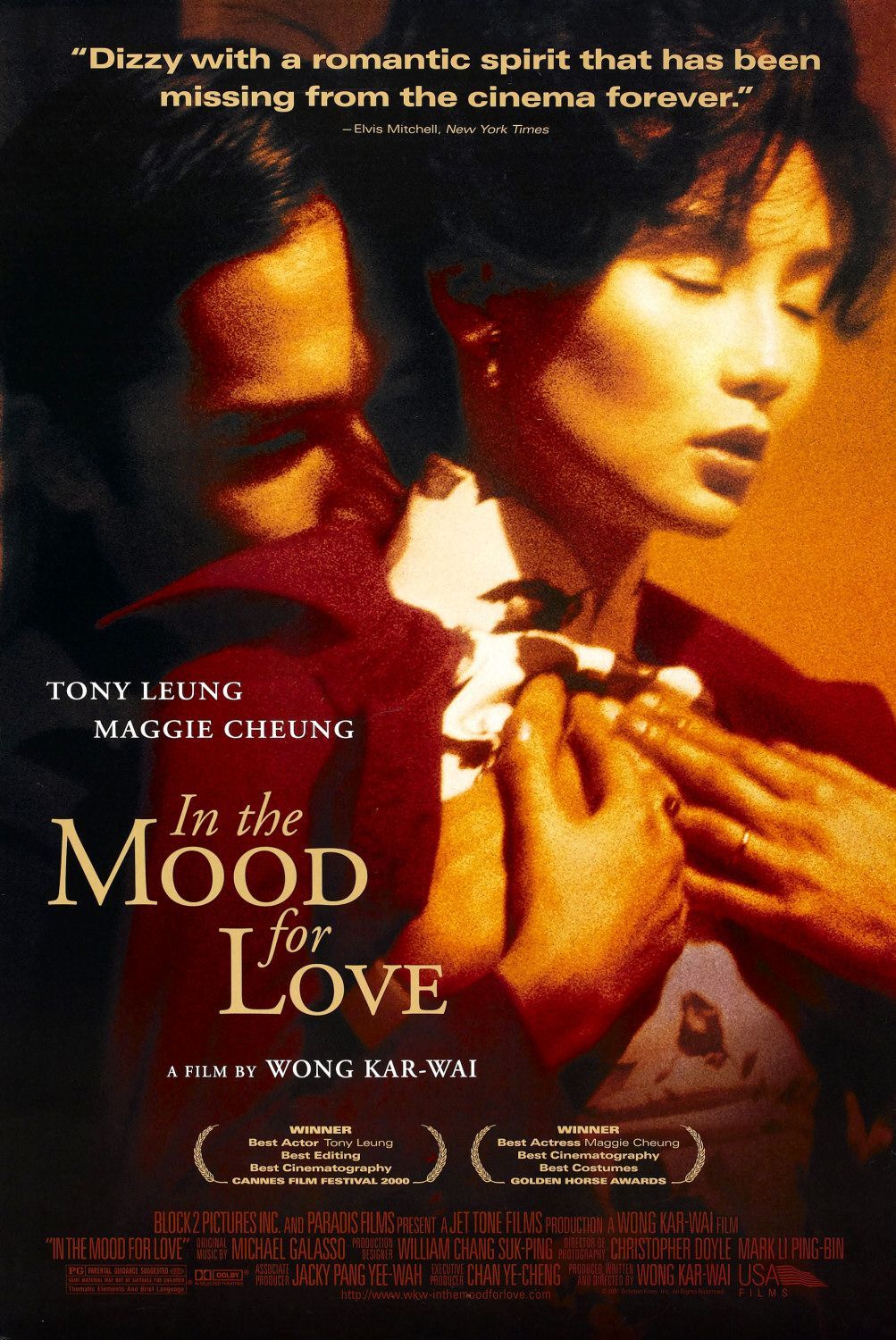
In the Mood For Love
Two neighbors form a strong bond after both suspect extramarital activities of their spouses. However, they agree to keep their bond platonic so as not to commit similar wrongs.
- Release Date
- March 9, 2001
- Director
- Kar-Wai Wong
- Cast
- Maggie Cheung , Tony Leung Chiu Wai , Rebecca Pan , Roy Cheung
- Main Genre
- Drama

